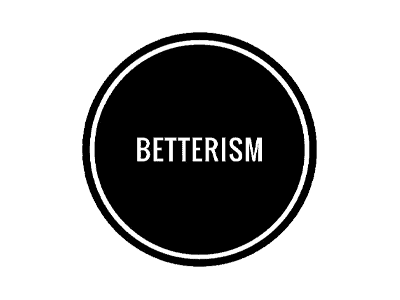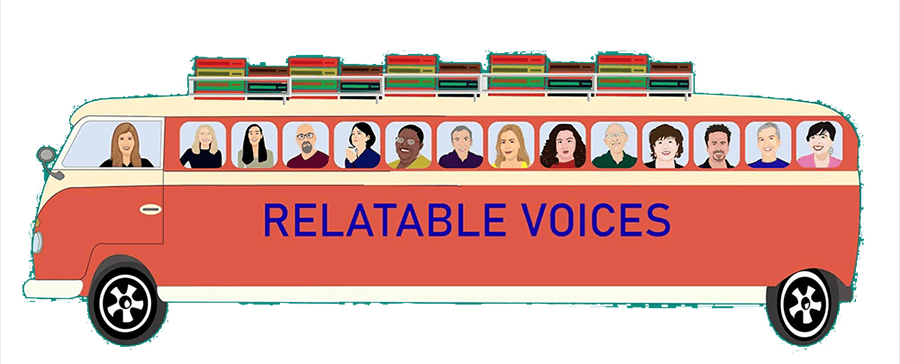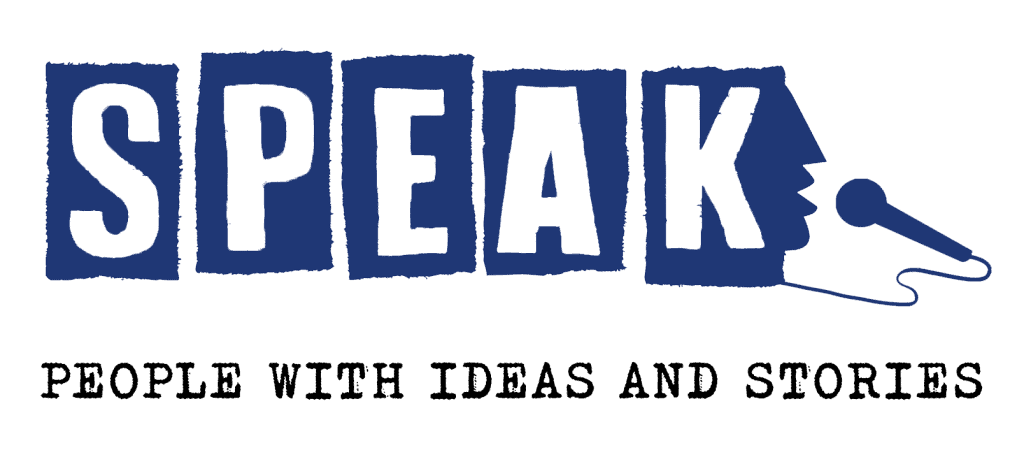Sometimes, the toughest challenges reveal the best in us. Terry Tucker’s story is a masterclass in resilience and compassion. From balancing an NCAA basketball career to caregiving for loved ones in their final days, and now navigating his 13-year battle with cancer, Terry shows us how to find meaning in the messiest parts of life. He turns pain into purpose through his work with Motivational Check, helping others realize their potential to lead extraordinary lives. His message? Lean into adversity—it’s not the end of your story but the beginning of something deeper.
About Our Guest:
Terry Tucker is a speaker, author, and international podcast guest on the topics of motivation, mindset, and self-development.
Among his diverse professional roles, Terry has been a marketing executive, a hospital administrator, a SWAT Hostage Negotiator, and for the past twelve years, a cancer warrior.
He is the author of Sustainable Excellence: Ten Principles To Leading Your Uncommon And Extraordinary Life and a co-author of Perspectives On Cancer: Stories Of Healing, Hope, & Resilience.
Motivational Check Website: https://www.motivationalcheck.com/
LinkedIn: https://www.linkedin.com/in/terry-tucker-9b5605179/
Facebook: https://www.facebook.com/motivationalcheck
X (Twitter): https://mobile.twitter.com/terrytucker2012
Instagram: https://www.instagram.com/sustainableexcellenceauthor/
YouTube: https://www.youtube.com/channel/UCl2CUA6R1zP2ZcjzhzGKWkQ
Sustainable Excellence, Ten Principles to Leading Your Uncommon and Extraordinary Life – Amazon Link: https://www.amazon.com/dp/B08GLGVTVS
About Me:
I have cared for many family members across the life span, experiencing the joys and challenges of child-rearing, the poignance of caring for parents, friends, and elder partners. I realized that I could not handle the stress of family caregiving 24/7/365. It was time for a new approach to caring. My health and happiness were slipping away. This is how Think to Thrive for Caregivers evolved. Let your mind meet your heart so you don’t lose track of your life.
Connect with Me:
https://www.deborahgreenhut.com/
https://www.linkedin.com/in/deborahgreenhut01/
Thanks for listening!
Thanks so much for listening to our podcast! If you enjoyed this episode and think that others could benefit from listening, please share it using the social media buttons on this page.
Do you have some feedback or questions about this episode? Leave a comment in the section below!
Subscribe to the podcast
If you would like to get automatic updates of new podcast episodes, you can subscribe to the podcast on Apple Podcasts or Stitcher. You can also subscribe in your favorite podcast app.
Leave us an Apple Podcasts review
Ratings and reviews from our listeners are extremely valuable to us and greatly appreciated. They help our podcast rank higher on Apple Podcasts, which exposes our show to more awesome listeners like you. If you have a minute, please leave an honest review on Apple Podcasts.
Transcript
Welcome everyone. My guest today, Terry Tucker has experienced a journey that's a combination of diverse experiences. He's been an eight NCAA division one basketball player, a marketing executive, a hospital administrator, a customer service manager, a SWAT hostage negotiator, a business owner, a high school basketball coach and a 13 year cancer warrior, an author and the founder of motivational check. I think this is probably worth about 25 interviews, but we're going to focus on caregiving today. So I want to welcome you, Terry. I'm so excited to have you here. Well,
Terry Tucker:Deborah, thanks for having me on. I'm really looking forward to talking with you today.
Deborah Greenhut:Yeah, we have a lot to get to, so let's get started. Your journey provides so many entry points for caregivers and care recipients, because you worked on both ends of this, if I have it right, you were a caregiver for your father and your grandmother in their last days. Could you tell our listeners a bit about how that came to happen? Sure.
Terry Tucker:So I graduated from college, and I'm really going to date myself now, but this is long before the internet was available to help people find employment. So I moved home to look for that first job. Fortunately, I did. I found, as you mentioned, I found that first job in the marketing department at the corporate headquarters of Wendy's International, the hamburger chain. That was the good news. The bad news was I ended up living with my parents for the next three and a half years as I helped my mother care for my father and my grandmother, who were both dying of different forms of cancer. My grandmother had lived her entire life in Chicago. She had moved to Ohio when my dad got an opportunity for a better job, and so she's in one bedroom and literally right next door. My dad is also dying of End Stage breast cancer while she's dying of lymphoma. So it was certainly a tumultuous time. It was probably about a six month window between the time they were both diagnosed. So it was me, my brother, who was in high school, and my mom. My other brother had was back in Chicago, going to school. So it was time to rally the troops, so to speak, and we were going to take care of Nana and my dad for as long as it took
Deborah Greenhut:so important that the family pulls together and shares that labor, because it's more than one person can handle, and you had two people to care for at the same time. So your family really did a did an epic service for one another there. Can you? Can you tell me a bit about what was the most difficult part of this challenge, this assignment for you, caring for your dad and your grandmother, I
Terry Tucker:mean, from a selfish point of view, and this is exactly what it was. It was, you know, I'm the first person in our family to graduate from college. I'm all set to make my mark on the world. And then this comes about. And so it was really a matter of putting my life on hold, which I would have done it. And you know, for however long it took my mom and dad gave my brothers and I the values of what's important in a family, of loving each other, of caring for each other, of supporting each other. And so, I mean literally, my day would I would get up in the morning, I would go into my parents bedroom and empty my father's journal. Then I would take a shower, I would get dressed, and I would go to work. And at noon, I would come home and help my mother get my father dressed, put him in my car, drive him to his work, get him put in his office, get back in the car, drive back to my office, spend the rest of the day doing my work, and then at five o'clock, reverse that, go get him, bring him home, help him get undressed and put him to bed. And I remember one day my dad had chemotherapy, so he lost a lot of his hair. I was drying what little hair he had, and he stuck on his hand, like he wanted to shake my hand. And I was like, well, that's kind of strange. And so I shook his hand, and in the palm of his hand was $100 bill. And I looked at that, and Deborah was like, What's this for? And he's like, Well, that's for all you do. I said, Dad. And maybe I shouldn't have felt this way, but this is exactly how I felt. I said, Dad, you're making me feel like a prostitute, like I'm doing this because you're paying me. I'm like you and mom have given my brothers and I everything. We all were college athletes because of you and what you did for us, we all have good jobs. Why are you trying to pay me for this? I said, Don't ever do that again. And I put the $100 bill back in his pajama pocket, and it was, you know, it was just trying to figure out all the different nuances how he was feeling. Was it a good day? Was it a bad day? And that was the negative part of it, the great part of it was that I got to lay there with my dad while he was. In bed and have some great, deep heart to heart conversations about life and what was important in life. And it wasn't work, it was connections, it was family, it was love. So as bad as it was, there was some good that came out of it as well. Yeah,
Deborah Greenhut:it's a kind of tricky bridge to cross with a parent, especially if you're used to being the needy one, because you were the child, and suddenly the roles are reversed. And I remember that well, in my own situation, I think that the difficulty comes about because those feelings of love overwhelm people on both sides of it. Your parents love you and they didn't want this to happen, and you love them, and you want to do as much as you can for them, and that's often the tricky dilemma, I think, for caregivers, how much can I do? So did you find yourself feeling limited at times or frustrated by the amount of that's a very busy schedule for one person that you had, even though there were hours in the day where you could do your work. Tell me about that part of it.
Terry Tucker:Yeah, I remember one time my, as I mentioned, my youngest brother was in high school at the time, so he was living at home, and he certainly was able to help as well. You know, we were all kind of pitching in and doing different things. And I remember my brother had a basketball game one night, and I said to my dad, I'm not going to Brian's game. I'm going to go work out. It's been a few days since I worked out, so I'm going to go work out after after my work. My dad said, No, you're not. And I said, What do you mean? No, I'm not. Yes, I am. I'm a man. I have my own job. I'm my own person. I'm going to go work out. My dad said, No, you're not. And it was, it was really kind of comical. I was being a jerk. I was just trying to sort of say, hey, I need my own time right now to do this, so I'm going to go do it. And my dad was like, No, your brother needs you at that game. Your brother knows that his father is dying. He needs you there for support. And my dad was 100% right. He was absolutely right. I was just being a jerk. I was trying to sort of puff myself out and say, You know what? I'm my own man. I can do my own thing, and that's true. But at the same time, it wasn't what needed to be done. I needed to be at my brother's game. My dad was absolutely right. I went to my brother's game. I found another time to have me, time to be able to go and work out and do things like that. So, I mean, it was as much a much maturation, you know, situation for me. I mean, I was right out of college. I was 21 years old. I still had a lot of growing up to do, some more emotional intelligence, to get and things like that. So it was, you know, and when do you find time to date? When do you find time to have friends? When do you find time to do all this kind of stuff? And there wasn't a lot of time for that. And I just accepted that as that was the price of doing business, of caring for my father and my grandma.
Deborah Greenhut:Yeah, that family imperative is so strong that it almost creates a different logic of how you're going to manage your own experience because of it, because there's a morality there about what needs to be done right now, as you've said, that is is really unshakable at a certain point, and there are only so many people who are around to do things. And it's true, your younger brother was going to need the support of you, if not your dad, at that point. So that's pretty important. Did being on a team before that, you know, an NCAA division one team, did that have anything to do? Do you think with how you saw the world at that point? Did that skill transfer over?
Terry Tucker:I think so. I mean, having, you know, started playing basketball, and I was like, seven, eight years old, you know, been on and that's a team sport, you know, it's not like golf or tennis, where you're you're by yourself. And, yeah, you understand the importance of team. You understand that, you know, each person has their role on the team, and we had our roles. You know, my mom was taking care of her mom pretty much when dad and I were at work and and, you know, we kind of, you know, it was almost like, you know, sort of tapping in at a wrestling match, you know, it's like, okay, I'm out, you're in now, and you're gonna do this, and we're gonna do that, and then, and, you know, like I said, As bad as it was for me, a lot of good things came out of it, out of it. But again, I just can't imagine the feelings my mother was going through with her mother dying in one room and her husband dying in another room, and they died within 18 months of each other. And so it was, I mean, she never wavered. She never said, Why is me? She never said, this is horrible. This is terrible. You know, why is this happening to us and our family and things like, Never, not once. Did she ever complain? Did she? Did I ever see her breakdown? I'm not saying she didn't, but it was never around us, and in addition to our family, there were friends. Friends that, you know, my dad loved the these ribs from the certain restaurant. And, you know, on Saturdays, he and his wife would go get the ribs and bring, bring them over and sit with my dad and have a meal, so that the rest of us could kind of go do other things, you know, go get a haircut, or, you know, go to church, or whatever it ended up being. So, you know, as much as it was sort of the family sort of circling the wagons. It was also friends that, you know, would come over and say, Hey, I know you need a break, you know, I'll take care of it right now, and things like that. So it was, it was, you know, sort of the best of times and sort of the worst of times all at the same time.
Deborah Greenhut:Yeah, when people pull together, you see what they're really made of and and this is something I talk about a lot, to try to get share, giving involved, where other people, friends, neighbors, communities, get together to try to help people who are going through these extra demand moments in their lives. And as Rosalind Carter said, All of us are going to either need or be be a caregiver at some point. So there's really no, no avoiding it. And the more you do to help people along the way, probably the easier it's going to be for you when it's your turn.
Terry Tucker:Yeah, I mean, it's important to lean into it, you know? I mean, we don't like it, but you know what? It's part of life. I mean, if you're if you're going to live, if you're going to love, if you're going to laugh, the price for that is you're going to die. And so by doing that, you know you need to be there when other people are going through it. You need to be there for support. And sometimes it's just, I remember reading an article, and I'm trying to remember where I read it or but it was a little boy whose neighbor, elderly neighbor's wife died, and he one day he saw the the husband, who was the who was left out on the front porch, cry, and so this little boy went over, and he just crawled up in the little to the to the man's lap, and he sat there. And then when he came home, his mom said, Well, what did you say to him? Said, I didn't say anything. I just helped them cry. You know, so sometimes that you don't really have to do anything, sometimes it's just being there to help that person if they want to talk, or just be be there with them to know that they're not alone,
Deborah Greenhut:right? A lot of people feel uncomfortable when someone starts to cry and they don't know what to do. And as you say, the point is you don't have to do anything. They just don't want to be alone. So that's that's really important. Now we've looked a bit at at your side of the caregiving dilemma. Is it okay if we focus now on your own journey through cancer? Sure. So what can you share with us that might be helpful to others who are going through this same experience right now?
Terry Tucker:at's had my foot amputated in:Deborah Greenhut:right? It's almost as if the background lines you're coloring in become so different, and there's a new shape coming forward, and it's you, it reflected in in this new understanding that you have, I you're painting a really rosy and optimistic picture of this, which I think is well inquiring, and yet I wonder, in the current support system that you have, do you see things that you wish you could have or do or be different with? Are there changes good? Make if we could reinvent that part of it,
Terry Tucker:battling. What I was told in:Deborah Greenhut:I can see that having another way to do it would would be a great fantasy, a great relief off your shoulders, and yet I hear in your voice over and over here, this motivation to survive, continue and have a thriving life, which you obviously do. Can you tell me some, some more about your motivational check effort. What is that about?
Terry Tucker:Sure. So motivational check is a term one of the jobs I had in my life as I was a police officer. And so to become a police officer, usually have to go to through a police academy and our defenses, defensive tactics instructor in the police academy gave us that phrase motivational check as something that you could just yell out if you were having one of those days where, you know, I just can't make it, you know, I'm down, I'm depressed, I can't get through this drill or whatever we're doing, and you could just yell out motivational check. And we were the 84th recruit class in the Cincinnati, Ohio police department Academy, and we would yell out 84 the rest of the class would yell at 84 basically to say, we hear you. We know you're hurting. We're hurting too, but we are going to get through this together. You're not alone. You're not by yourself. We're going to get through this together. So when I was looking for something to call my company motivational check just seemed to be, you know, hey, it's a it's a phrase. It doesn't mean anything to anybody else, but it means something to me as I'm not alone. I've got people, I've got support. I've got people I can turn to, things I can turn to, to help me with my business, but also helped me through this cancer journey. And it's really just an arm that I use for writing my books, for speaking and for doing my podcast.
Deborah Greenhut:Well, it sounds like a very inspiring arm to have. So so it's your umbrella for everything in your motto that this is how we're going to remain strong Absolutely. So what? What would be your next venture? You you've done so many things already, and you have a couple of books out there that that we should all take a look at, and those will be in the show notes. What else would you like us to know about what's next for Terry Tucker? So
Terry Tucker:I, you know, I wrote this book when I had my leg amputated, called Sustainable excellence, 10 Principles to leading your uncommon and extraordinary life. And it's a book about things I've learned about how people can be successful. And even after I published that book, there was always kind of another book that also was a word that started with the letter S, and that word was significance. You know, success is what we do for ourselves. Significance is what we do for other people. So for the last year and a couple months, I've been working on a second book called four truths and a lie that I hope to have published early next year that's about. How you can be significant in other people's lives. It's a lot of, I think good stories. I think people remember more things when you tell them a story, as opposed to just giving them. Here are five things you should remember. Tell them a story about those five things, there's a better chance they'll remember it. So I spent a lot of time doing research and finding stories and things like that. So that's one thing I want to do. And I also want to, want to speak more, you know, I everything kind of shut down during COVID. And as someone who has tumors in my lungs, the thought of getting COVID, which I lucky, knock on wood, have never had yet, is something that sort of scares me, you know what? How am I going to be able to handle that with the cancer and things like that? I want to get out more and and speak in that I spend so much time at home, and technology is great because it allows me to do you know great podcasts like this with you, but it it's not the same as being with people. It's not the same as having those connections. I'll tell you a quick story. There's a professor at the University of Chicago, psychology professor who does this experiment with the students. The idea is to go out and get on a bus, and in three questions, to be deep with somebody. So you get on a bus, you know, sit down next to somebody. Hey, how you doing? I'm good. How are you? That's question one. Question two, and I'm just making this up, what do you do for a living? Oh, I'm a doctor. Okay. Question three, have you always wanted to be a doctor? No, I grew up on a farm, and I wanted to be a veterinarian, but X, Y and Z happened or, yes, you know, my mom was my hero, and she died when she was 40, so being a doctor honors her memory. And things like, now you're deep with somebody. Now you're, you know why you're you're getting into the why they do what they do with their lives, and so that that's a missing piece for me right now, I don't have as much opportunity to do that with people. Yeah,
Deborah Greenhut:I think the idea of leaving something behind that's significant, know that you had some kind of an effect, and combining that with the idea of telling stories, which is really how we learn and how we learn to care about one another. Those are two really powerful goals to have, so I'm sure that you are on the road to success with it, and I wish you so much happiness, good fortune, and to you and your wife for being heroes in this day and age, for staying together on the course of keeping you motivated and keeping you well, as long as as that's humanly possible, that's an extraordinary gift to give each other to to stay with it. So So I I really appreciate this interview, and I believe my listeners can learn a lot from your spirit and from the message that you're giving us. So I hope you get those speaking engagements, and we will look forward to seeing you on the trail. So thank you for coming today.
Terry Tucker:Well, Deborah, thanks for having me on I really enjoyed talking with you.
Deborah Greenhut:My pleasure. So I hope everyone will join us next week and take this interview to heart. I think there's a lot in here that you can dig into and ask that person on the bus next to you a question next time, see what you can find out. Thank you, Terry, thank you.
















